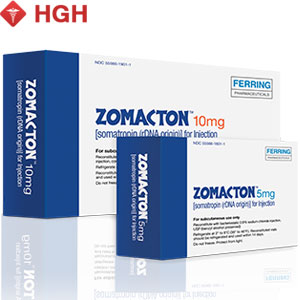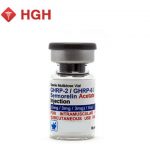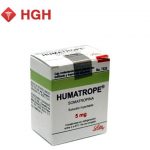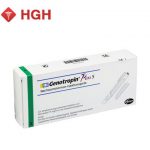
Hormones are vitally important chemical messengers in the body. They interact with each other and affect all biological and cellular functions. Testosterone has an important role to play for both men and women, so when testosterone levels decline, it can cause problems. In those cases, testosterone replacement therapy may be an option.
Testosterone Levels
In healthy men and women, testosterone levels remain within a certain range. The ranges vary according to age and gender. In women, normal testosterone levels range from 15–70 nanograms per deciliter (ng/dL). Menopausal women tend to have lower levels. Normal readings in men can vary from 280 to 1,100 nanograms per deciliter (ng/dL). In men, the testosterone normally drops about one percent per year beginning around age 30. Adolescent boys typically have much higher levels. Among men over the age of 70, three of ten may have low testosterone levels.
Testosterone Effects in the Body
While testosterone is the primary sex hormone for men and a secondary sex hormone for women, it also has other effects. Testosterone affects bone density, muscle strength and mass, and fat distribution. In men, it promotes the growth of facial and body hair. If levels are too high in women – as with polycystic ovarian disease (PCOS) – it can also increase facial hair. It is an integral part of red blood cell production, affects the sex drive and affects sperm production in men. Low testosterone levels can result in fatigue, changes in libido, excess fat and weakened muscles, as well as sleep, mood or thought disturbances.
What is Testosterone Replacement Therapy?
When an individual has low testosterone levels – as confirmed by blood work and symptoms – a doctor may suggest testosterone therapy. The hormone must be given by injection at intervals varying from two days to two weeks. The dosage schedule depends on the type of testosterone used. You should have regular blood tests to confirm whether the injections are working. Testosterone replacement therapy for men is becoming more common, especially for those men whose testosterone levels begin to drop at a fairly young age. Testosterone replacement therapy for women is less common.
Benefits and Risks of Testosterone Therapy
In those individuals who suffer from hypogonadism – a disease or condition that results in low testosterone levels – testosterone therapy can be very beneficial. In those who have low levels due to aging, the medication may also be helpful if symptoms are severe. Like any medication, testosterone may have side effects. These include an increased risk of sleep apnea. Testosterone may cause acne or make it worse. It is not usually recommended if the patient has breast or prostate cancer. Testosterone can increase the size of the breasts (gynecomastia) or affect sperm production. There are some studies that indicate testosterone may increase the risk of blood clots and heart disease.
Is Testosterone Therapy Safe?
The answer to this question is a qualified yes. If testosterone is obtained with a doctor’s prescription and from a reputable source, it ensures purity and an accurate dose of the medication. It's important to give testosterone in the correct dosage and to check testosterone levels at the beginning of therapy and throughout the therapy period. However, this is a relatively new treatment and there is little research to indicate the long-term effects of testosterone therapy. For many patients, the negative symptoms of low testosterone – such as infertility, severe fatigue and decreased sexual function – make the benefits worth it. Only you and your doctor can decide whether testosterone replacement therapy is right for you.
Forms of Testosterone Medications
Testosterone is available as injections and in pellets, patches or gels. Injection of testosterone is the most common method used in testosterone therapy. Testosterone is available in three forms:
- Testosterone Cypionate – the longest-acting of the various forms of injectable testosterone. The usual dose is 100 milligrams once a week.
- Testosterone Enanthate – metabolized more quickly than testosterone cypionate, It is given in 100-milligram doses every three to five days.
- Testosterone Propionate – very fast-acting but not long lasting; a dose may be required every three days to maintain optimum hormone levels. However, this form has a higher percentage of available testosterone than the others
Wellness MGT corp. ® ☎ (800) 899-8233




